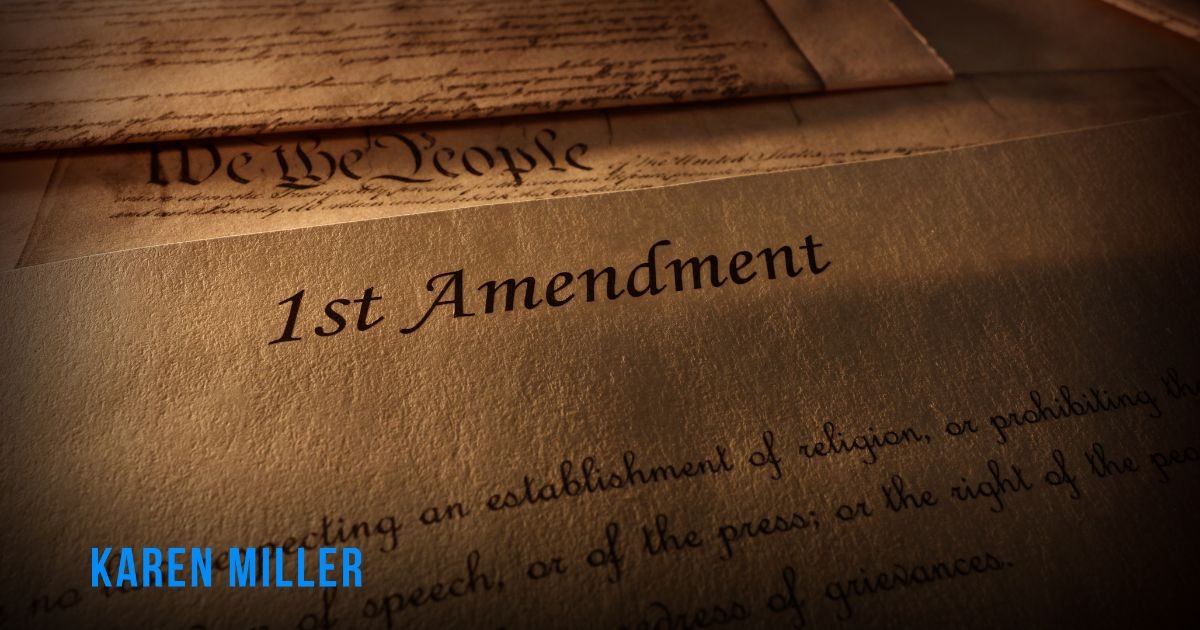The Tyranny of the First Draft
- 29 Aug 2007 12:00
- 547

Terry Pratchett said it somewhere, and I think he said it perfectly: The first draft is just you telling yourself the story.
I strongly believe that the biggest favour any writer can do for him or herself is plaster that piece of advice on every available surface and read it frequently – or better yet, daily. Especially if said writer is tackling a novel. Or, worse, the first novel in a series. Because, dear reader, few things are as intimidating as the prospect of writing a novel. And even fewer things are as intimidating as that when you’re a writer without a contract, a writer who’s writing a novel on faith, in hope, without any guarantee that the hours and hours and hours of hard work will achieve anything other than time gone by that can never be recaptured.
The reason Pratchett’s advice is so important is because many, many, many writers fail to complete the first draft of a novel. They never get to write The End. I was one of those writers for a lot of years. It sucks. It saps your energy and your self-belief. Finishing the first draft of a novel is one of the most empowering experiences a writer can have. And if you truly want to be a published novelist, then hello! … you’ve got to finish the first draft first. Because without a finished first draft you’re dead in the water.
So why is it so often so hard to finish the first draft of a novel? Basically, I think it comes down to fear.
Fear is a funny thing. Sometimes it can motivate us. I know that ultimately, the reason I was able to finish my first first draft (of the book that ultimately became the Kingmaker, Kingbreaker duology) was fear of reaching the end of my life having failed to give writing my very best shot. Every time I looked at walking away, giving up, something inside me said, No. Don’t you dare. The fear of not trying overcame the nearly as powerful fear of trying and failing.
But I was afflicted with other fears as well, the fears that stopped me from finishing that first first draft a lot sooner than I could have. Fear of failure. Fear of success. Fear of losing hope, the dream. While you’re still engaged in the process of writing, the dream still lives. The world is full of possibilities. But once you finish you’re closer to harsh reality. You’re closer to rejection. It’s safer to stay in the dream. It also means you’ll never make the dream come true. It’s up to you – keep on dreaming, or bite the bullet and get into the real world.
Yes. It’s a risk. But if you don’t take that risk, you’ll never know what might be.
Labouring under all that fear meant I did a lot, a whole lot, of writing and rewriting of the early parts of the story. Trying to make it perfect as I went along instead of surrendering to the process knowing that it was only the first draft and merely stage 1 of the entire novel-writing adventure.
First drafts aren’t supposed to be perfect. They’re just supposed to be written. It’s in the rewriting that you find the true novel. That’s where much of the crafting of your novel takes place. How can you know the story you’re telling if you don’t have it in front of you from beginning to end? If you can’t step away from it and see it as a whole? If you haven’t groped your way from idea to execution? With a few exceptions, I don’t think you can.
Yes, there are some novelists who can produce a virtually perfect first draft. They are in the minority. Don’t kid yourself you’re one of them, because it’s far more likely that you’re not. Especially if you’re writing a big book, or series of books, as most fantasy -- for example -- these days appears to be. There’s just too much information, too many threads and subplots to reasonably expect you’ve nailed down every last one first try. And expecting yourself to do that is just another way of succumbing to fear. It’s an excuse that lets you off the hook.
So. When you find yourself obsessively reworking and rewriting the first chapter, or few chapters, recognise the behaviour as a stalling tactic and knock it on the head, pronto. Bear in mind that your story will most likely change in the process of being written. As part of the creative process you think of new things that will affect what’s gone before. Characters will assume different significance, some will fade into the background, some will leap into the spotlight. New characters might appear as if by magic and cause you to rethink a whole lot of plot. This is the fun part, the discovery of the story. Don’t fight the process, embrace it! Enjoy it! Who cares, at this point, if the writing’s not perfect? You won’t be showing it to anyone but yourself.
The single most important thing about your story is that it has momentum, a sense of narrative drive. You’ll bog yourself down if you stay in one place too long. Go, go, go. No, the writing won’t be superlative in a first draft. It’s not meant to be. Think of a first draft as a rough pencil sketch that gives you the framework for the story you’re telling. Like an artist, you’ll add the colour and detail later. Just get the bones down, so you can step back from the canvas and see what you’ve done. See what’s good about it, and what’s bad. What parts are still too sketchy, and what’s been perfectly captured. Smile at the latter, get to work on the former.
Writers are schizo people. We need to wear two hats: the Writer, and the Editor. And we have to keep one locked in a box while the other is working, or we won’t finish the book. The Writer writes – and must be free to write even though the work is still far from perfect. In the first draft it doesn’t matter if the prose is clunky sometimes, if there’s some word repetition, if the dialogue is occasionally stilted. None of it matters. It can be fixed on the rewrite. The Writer must not be paralysed by the carping of the Editor, who notices everything that’s wrong with the work and wants it fixed now. It doesn’t need to be fixed now. It’s more important to finish the first draft and fix it later.
Of course, when the first draft is finished the Writer has to sit in the box so the Editor can assess the story, iron out the lumpy bits, fix all the plot-holes and so on and so forth without the Writer bleating and complaining about the cuts and changes. But only when the first draft is finished. Turning the Editor loose in the middle of the writing process is usually fatal. The Editor is critical. The Writer is creative. These two essential personas must be kept apart, or there’s a chance that first draft will never be finished.
The only way to do this is to do it. There are no magic bullets, no quick fixes, no secret handshakes that can get you over the finishing line. The only way to run a marathon is by putting one foot in front of the other for 26 miles. The only way to produce a finished novel that you can show to an agent or an editor is complete the journey from page 1 to the end. That’s it. It’s that simple … and that hard.
There is no point, if you’re a new writer, in showing an agent or editor the first three over-polished chapters and a synopsis. More than anything, these people want to know you can go the distance. Writing a novel is a mammoth task. You have to prove you’ve got the stamina to finish. You also have to prove you’ve got a good style and a good plot and engaging characters … but if you can’t finish the book, none of that matters.
Yes, it’s scarey. It’s a lot of time and energy invested with no guarantee of success. No promise that you’ll be recognised, or published. Or, if you do have that contract, that anyone will buy the damned book when it’s in the shops. That’s the nature of the beast. You either accept it, or you take up knitting. You know what they say: feel the fear and do it anyway. Because if you don’t, then it’s game over. Nothing happens without a first draft.
So write the damned thing. Get it done. Get it finished. Give yourself permission to write badly. Give yourself permission to write worse than badly. Give yourself permission to stumble, to flail, to thrash around on the pages like a raving loon.
It doesn’t matter.
Finish your first draft, so you can turn it into your second draft, and your third draft … or as many drafts as you need to make it a fabulous novel.
Without a completed first draft that will never happen. The first draft is the first step, it’s not the end of the journey. It’s where the story begins. Do I need to say it again? Keep your eyes facing forward and write, write, write, till you reach The End.
And enjoy yourself. It’s supposed to be fun!
